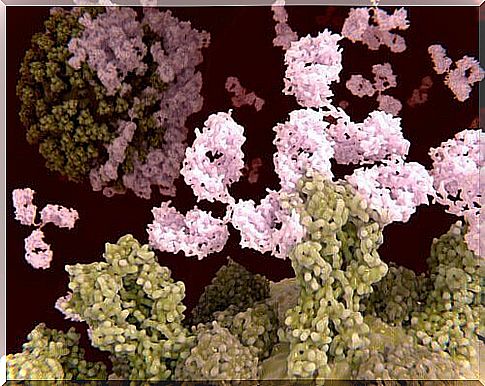Pneumonia Treatment: Everything You Need To Know About It

First, the treatment of pneumonia depends on the type of pneumonia that the patient may have. Based on this, the physician must consider many important factors to determine the appropriate treatment on a case-by-case basis. These factors include the patient’s symptoms and age.
The types of pneumonia can be divided into two main categories:
- Home pneumonia. Patients can get home-born pneumonia from their daily activities.
- Hospitalized pneumonia. Such pneumonia refers to patients who develop pneumonia while in hospital. These cases tend to be more serious, as it is not the only affliction of the patient that requires treatment. In other words, it poses a new problem. They tend to be bacterial infections that occur in the hospital. They are also usually quite resistant in people who are ill or recovering from other diseases. Therefore, hospitalized cases of pneumonia are more difficult to treat.
All types of pneumonia can lead to sepsis, which occurs when the infection spreads into the bloodstream. If the case results in sepsis, pneumonia can lead to death in elderly patients or patients with a weakened immune system. For this reason, it is very important to use treatment on a case-by-case basis according to the specific needs of each patient.
The most appropriate person to determine the best treatment is a doctor.
What causes pneumonia?
Pneumonia can be caused by bacterial, viral or fungal infections. Depending on the cause or etiology, physicians may prescribe treatment or other option.
To understand these treatments, let’s look at three causes of this disease:
Viral pneumonia

The most obvious examples of such pneumonia are caused by a virus such as the flu or chicken pox.
Bacterial pneumonia
It includes:
- Pneumococci
- Staphylococcus
- Gram-negative bacteria (-)
- Hemophilus
- Klebsiella
- E. coli
- Pseudomonas aeruginosa
There are also atypical types of pneumonia in the bacterial group. Atypical types of pneumonia develop more slowly than normal. They are not readily detected in clinical images and the factors that cause pneumonia tend to be less common.
Bacteria that cause atypical pneumonia include: legionella, mycoplasma, chlamydia.
Fungus pneumonia
Such pneumonia is caused by fungi such as Candida or Pneumocystis jiroveci. This type of pneumonia is more common in patients with a weakened immune system, such as those with HIV or AIDS.
Treatment of pneumonia
In general, the treatment of pneumonia involves the administration of antibiotics to a patient. Depending on the cause of the infection, its characteristics, and the patient’s general health, doctors will prescribe specific antibiotics or may choose a combination of several antibiotics.
They are the types of treatments used according to etiology.
Pneumococci
The most common pneumonia in this group is streptococcus . To treat such cases, doctors give amoxillin. However, there is a high chance that the patient will be resistant to this antibiotic.
If your body shows resistance, other treatments may be included:
- Cephalosporins
- Clindamycin
- Cefuroxime
- Erythromycin (in more severe infections)
There is also vaccination against streptococcus. It is intended for children and people over the age of 50. However, it does not prevent pneumonia caused by other causes, such as any of the above.
Staphylococcus
The main cause of such types of pneumonia is staphylococcus . The treatment for such pneumonia is called penicillin.
Types of penicillins used include:
- Flucloxacillin. This medicine works in response to the microbial beta-lactan (penicillin).
- Cephalosporins include cephalothin and cefamandole.
- Clindamycin. Effective against 90% of bacterial strains.
Gram-negative bacteria

In the group of Gram-negative bacteria, the main causes of pneumonia are:
- Hemophilus
- Klebsiella
- E. coli
- Pseudomonas aeruginosa
The right treatments for these are:
- Hemophilus . There is vaccination against hemophilia. It is recommended that all children be vaccinated as a preventative measure. Sulfatrimethoprim is the right choice of medicine because it is an antibiotic that combines trimethoprim and sulfamethoxazole. Other antibiotics include: cephalosporins for gram-negative bacteria, amoxicillin, fluoroquinolols, and azithromycin.
- Klebsiella . This bacterium is resistant to ampicillin as well as numerous beta-laxanes. However, it is very susceptible to aminoglycosides and cephalosporin antibiotics.
- E. coli. Treatment of pneumonia against this bacterium requires hospitalization to support respiration. Thus, the patient receives a sufficient amount of oxygen. In such cases, physicians seek to administer fluoroquinolones and cephalosporins such as cefixime, cefpodoxime, and cefdinir.
- Pseudomonas aeruginosa. In order to use effective treatment in these cases, the doctor should take a biopsy and base the treatment according to its results. This bacterium is resistant to numerous antibiotics.
Treatment of atypical pneumonia
Legionella
- The medicine to fight Legionella is erythromycin.
- If the case is severe, erythromycin may be supplemented with rifampicin.
- Other options may include ciprofloxacin, azithromycin, or other medications prescribed by your doctor.
Mycoplasma
Most patients infected with this bacterium get over the infection with or without treatment. In the first case, the correct antibiotic choice is erythromycin.
However, treatments may also include:
- Tetracycline
- Clarithromycin
- Azithromycin
Treatment of chlamydia pneumonia
This bacterium usually leads to severe cases that require hospitalization. Treatments usually include the administration of doxycline, except in patients suffering from chronic diseases associated with heart attacks or other problems.
Other commonly used drugs in such cases of infection include erythromycin and tetracycline. Treatment usually lasts 10-21 days.
Treatment of viral pneumonia

When pneumonia is caused by a virus, antiviral drugs such as acyclovir are recommended for the treatment of lung infections caused by herpes or chickenpox.
Cytomegalovirus (CMV) pneumonia can be treated with ganciclovir. However, it has not been shown to be effective in AIDS patients.
Some patients develop post-bacterial infections that force them to go through a course of antibiotics. If a patient has a viral infection, it is recommended that they take an antipyretic pain and cough medicine.
Treatment of fungal pneumonia
In this case, doctors prescribe antifungal drugs, which are:
- Amphotericin B
- Fluconazole
- Itraconazole
- Fluscytosine
These medicines can have side effects. Users should inform their doctor if they experience any of the following symptoms:
- Increasing sensitivity to the sun (especially on the eyes)
- Fever
- Chill
- Rash
- Itch
- Diarrhea
- Nausea
- Vomiting









